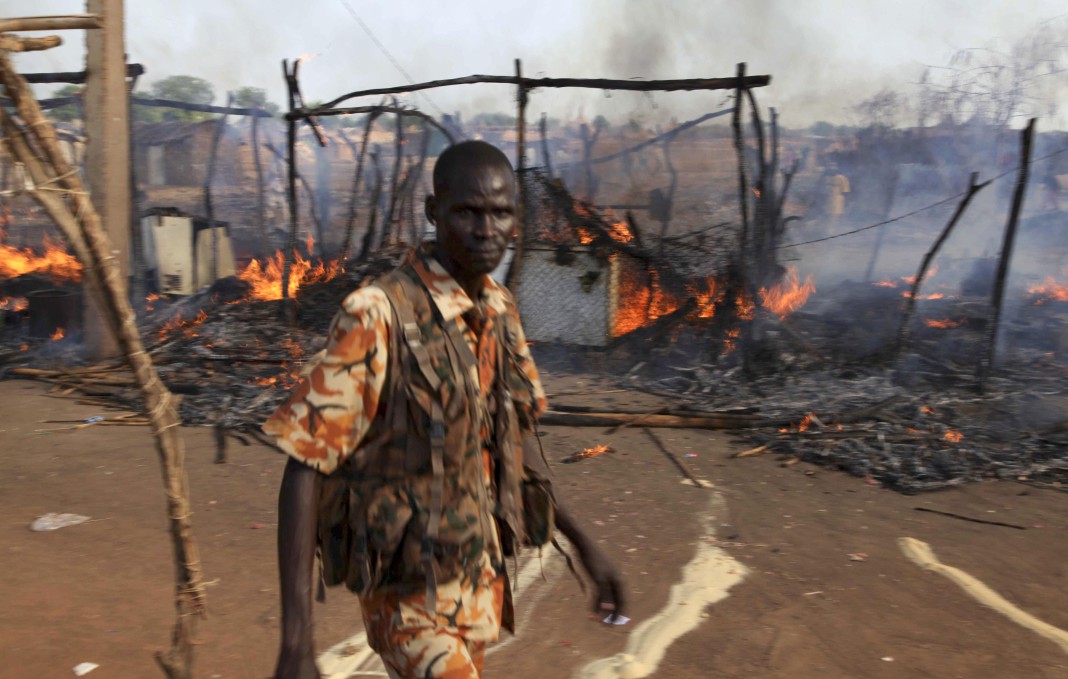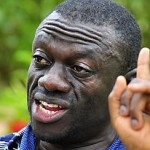The 15th of December 2015, marked the second anniversary of the outbreak of war in South Sudan. In a mere two years, thousands of people have been killed, including 1,457 children, millions displaced, including 1,550,000 children, 16,000 children recruited by armed groups, 413,000 children forced out of school, and almost 10,000 vulnerable children have been separated from the protection and loving care of their parents and extended families.
Statistics such as these can sometimes appear to be faceless – often shielding the fact that there is a human face behind every figure – including that of children who are least able to defend themselves in times of conflict. To mark this second anniversary, Save the Children reached out to and recorded testimonies of ordinary people whose lives were badly affected by the war.
Marina is the Aunt of 9year old Joseph* and his 14year old brother Jonathan* who were separated from their mother when fighting started in Bor, in Jonglei state. Here-below, she talks about war, survival, separation, and reunification:
I have three children of my own, and I am also looking after my sister’s children. They were separated from their mother in Bor when the fighting started. They were living in the camp (UN Protection of Civilians Camp – aka PoC) but it wasn’t safe. The camp was often attacked by soldiers and many people were killed.
Then the rebel army took over the town and started transporting the children out to safety. There was no space for their mother in the vehicle, so she sent them first. But then the rebels were pushed out of Bor and the vehicle couldn’t return. She was stuck there.
I don’t know where she is now. The last time I heard from her she was in Juba, but I haven’t managed to communicate with her for over a year.
When the children arrived here, they were scared and really sad that they had to leave their mother behind. They were very withdrawn and would not speak to anyone or eat their food. It took them a long time to adapt.
It’s a strange place to them and they didn’t know anyone. Even me, they hadn’t seen me for over two years – and they were very young.
The older one, (Jonathan*) he understood why they had to leave, but Joseph* was still young and didn’t really understand why they had to leave their mother and come to Waat.
He used to tell me that when they were leaving the camp, (PoC) he saw all the dead bodies on the side of the road, and that people chased them with big guns and tanks, and that they were firing at them when they were running away.
He was really traumatised – he wouldn’t talk to anyone. But after a while he started going to the play area (‘Child Friendly Spaces’ set up by Save the Children) and each time he returned, I could see an improvement. It really helped him forget what he experienced there.
He is always asking for his mother. If someone arrives from Juba, he asks: “have you seen my mother?”
The biggest challenge I have is that I can’t provide them with enough food to eat, clothes to wear, or even soap to wash. Save the Children has given us sleeping mats, blankets, mosquito nets, shoes, buckets and soap. It made a big difference for us – especially the mosquito nets.
They used to get malaria all the time, but not anymore. And the blankets stop them from getting sick during the cold nights in the dry season.
Save the Children has also helped them at school with books and pens, and the play area (Child Friendly Space) has helped them to integrate better here. They didn’t know anyone here before but now they have many friends.
“…The thing I want most is to see my mum again and go to a good school,” says nine year-old *Joseph*.
The writer is a Media & Communications Manager, Save the Children South Sudan







